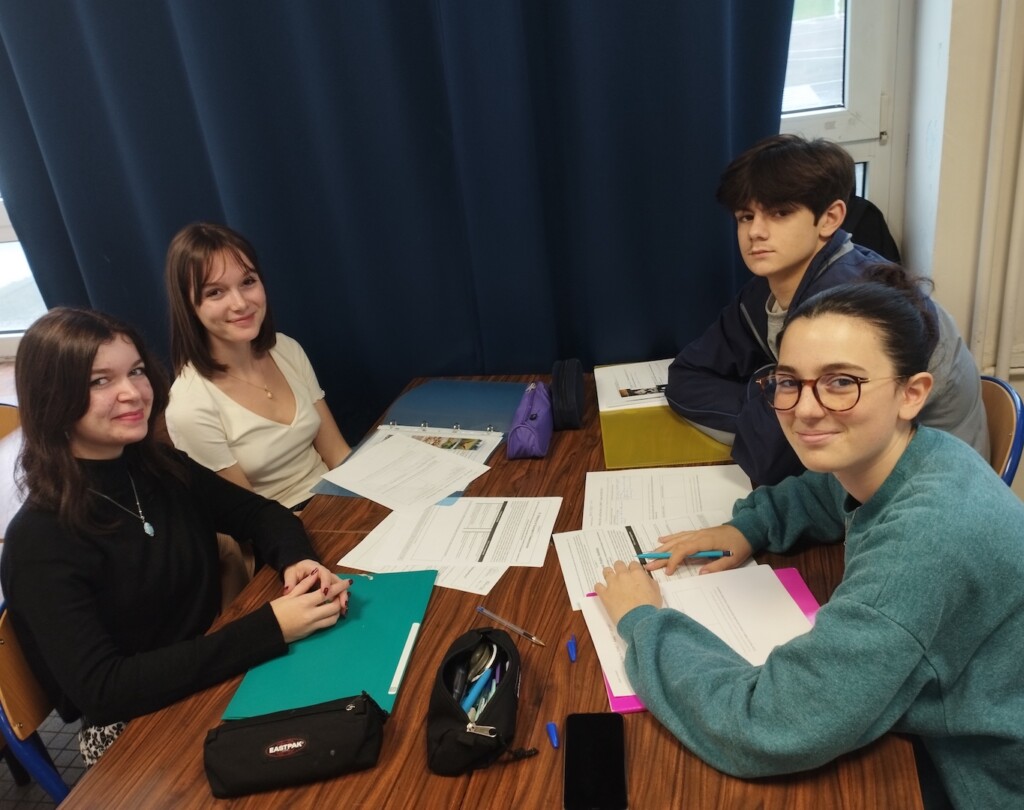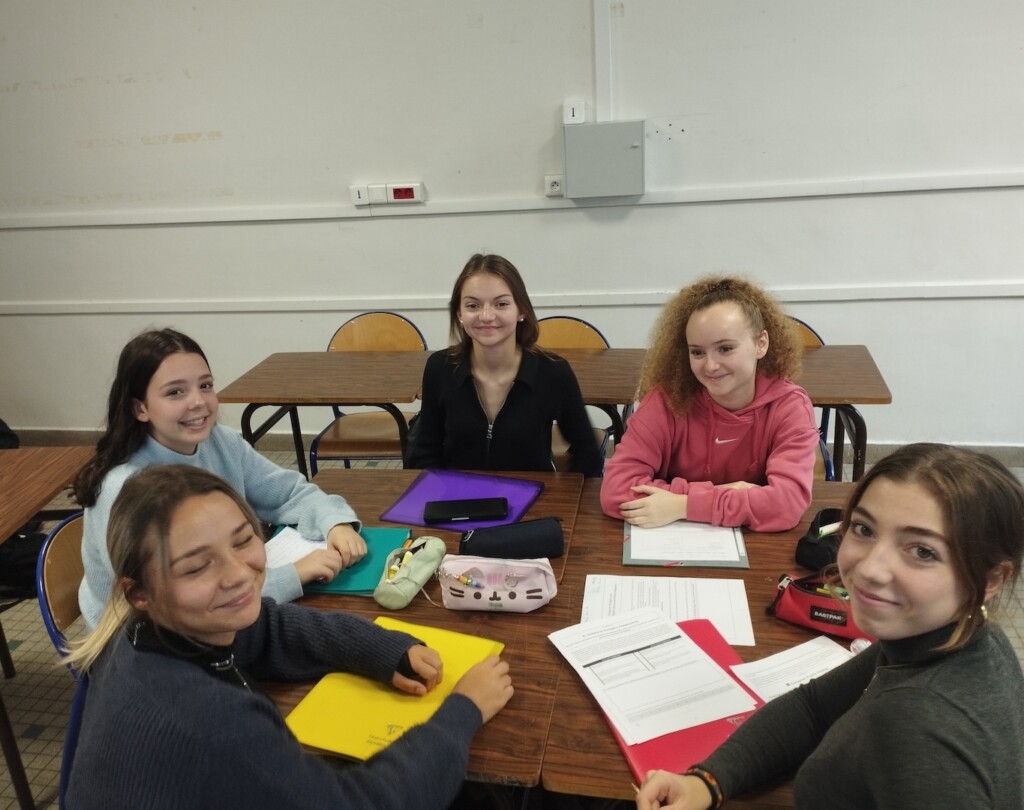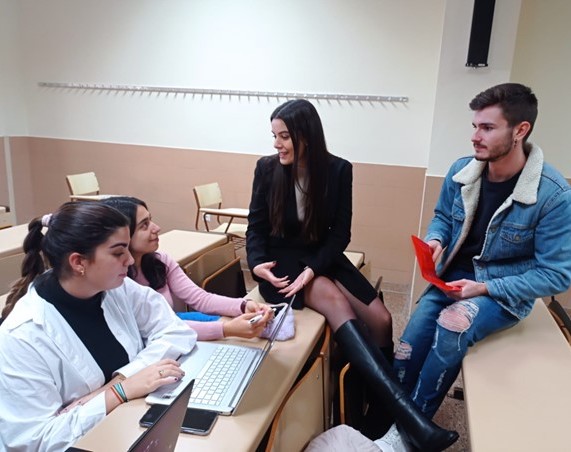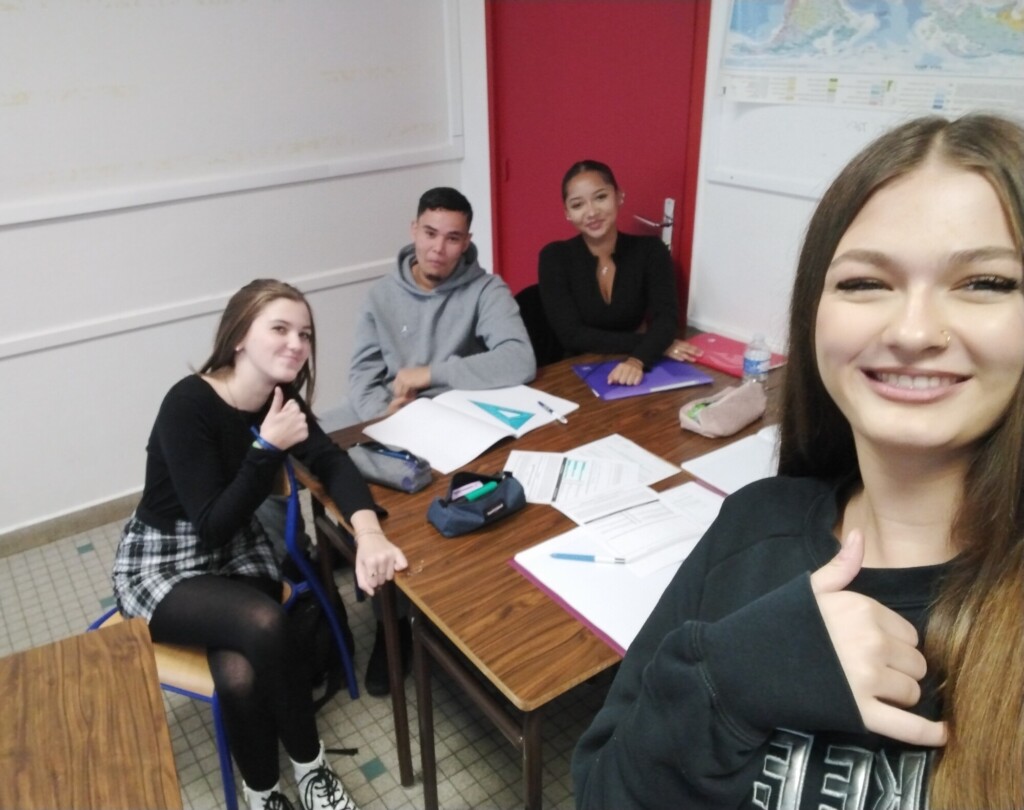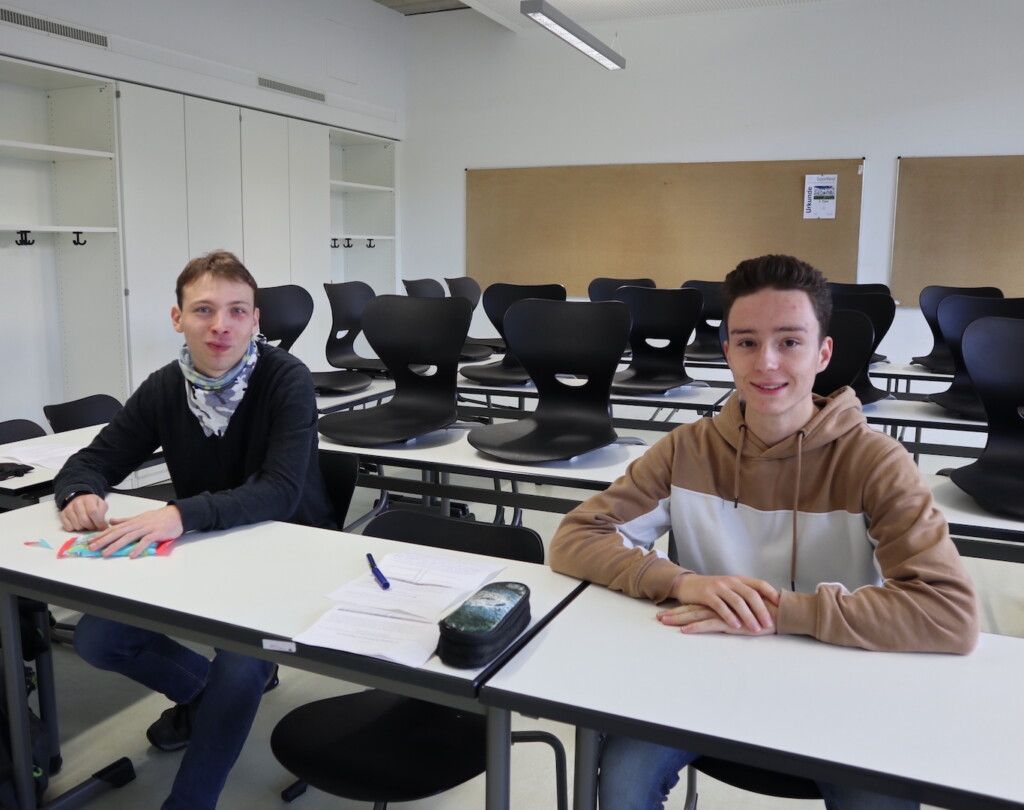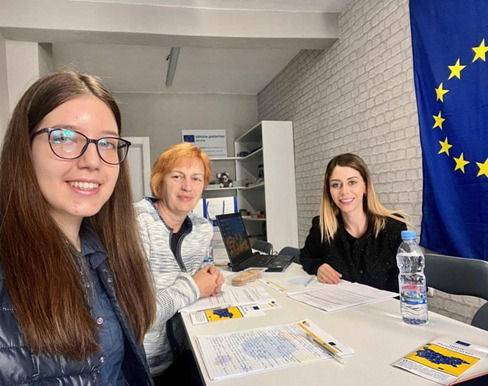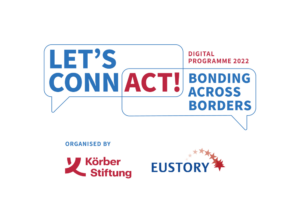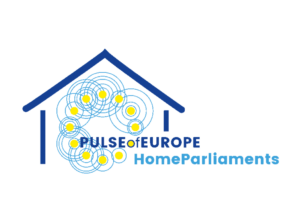
Europe on The Next Level
Do we Need Deeper Cultural and Political Integration?
With Russia’s war of aggression on Ukraine, Europe has experienced a turning point. In this context, it became even more evident that apart from politics, factors in the fields of commemoration, history education, and EU enlargement also determine the direction in which Europe will develop in the future.
In the framework of the EUSTORY Youth Activity “Let’s ConnAct! Bonding Across Borders”, this very current subject was taken up by young Europeans in Workshop No. 3 – the European HomeParliaments – by discussing three concrete questions related to the overall issue:
Europe on the next level: Do we need deeper cultural and political integration?
- Should there be a joint European Public Holiday to commemorate Europe’s shared history and values?
- Should history education in Europe’s schools provide more common European content and go beyond national narratives?
- Should EU enlargement be accelerated for countries with candidate status?
In the digital workshop, participants from Spain, Bulgaria, Germany, France and Ireland were provided with the necessary training and a moderation guide. Fully prepared, they met in private, very vivid HomeParliaments, held in a bar, at home or in school with 3 to 8 neighbours, friends and family to discuss the given questions.
Collected and evaluated by professionals, the discussion results became part of a big, international opinion piece representing the perspectives of Europe’s citizens.
Results
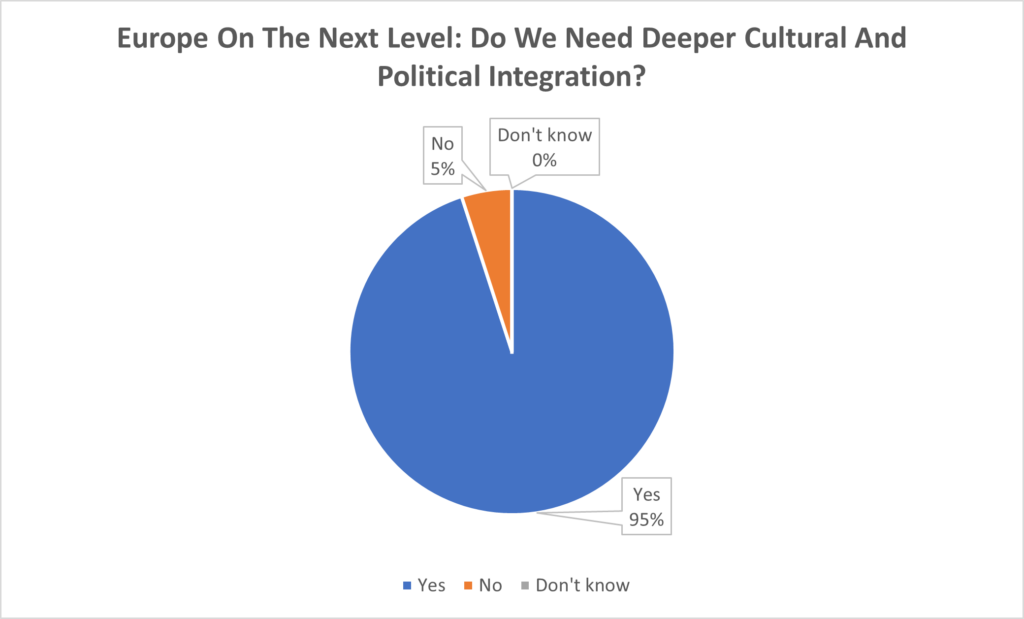
Do We Need Deeper Cultural and Political Integration?
At the end of each parliament and after having discussed the three sub-questions, a vote was taken on the overall question. A clear majority of 95% sees the need for deeper political as well as cultural integration.
Should there be a joint European Public Holiday to commemorate Europe’s shared history and values?
A clear majority (average value: 6.33) is in favor of a common European holiday. With most votes concentrating on values between 8 and 10, the idea of a joint European holiday is considered as very positive. Noteworthy: The low value of the undecideds, represented by the low number of people who chose the value 5. It shows that when it comes to the polarising question of a European holiday, most participants have a quite clear position.
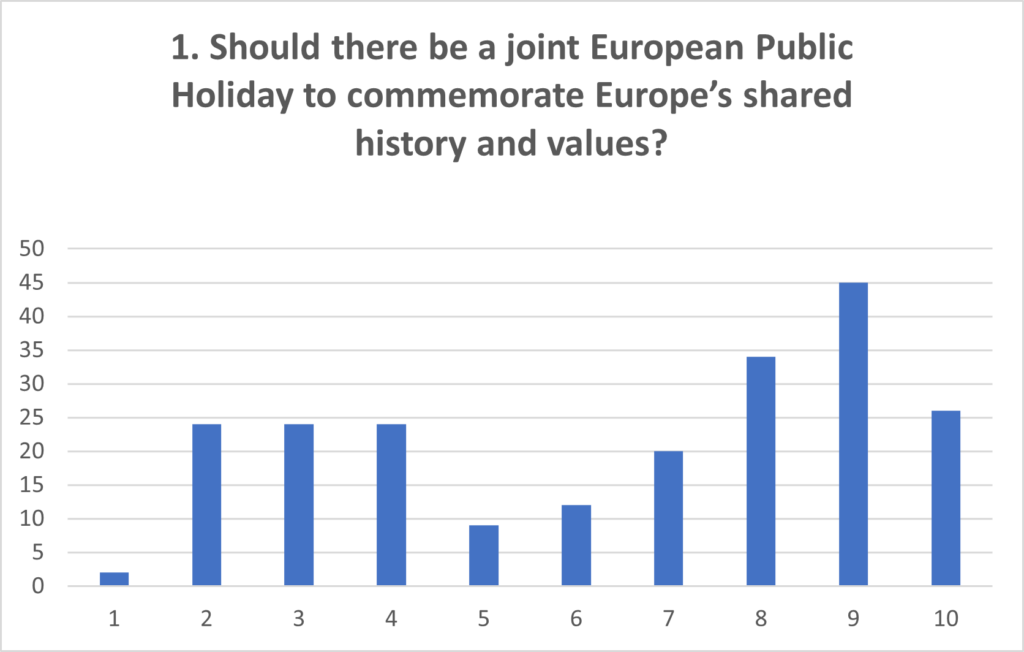
Participants’ Voices
PRO: “Commemorating by a European public holiday doesn’t make sense in a context in which there are disputes among European countries. We are not united enough to celebrate anything.”
CONTRA: “I suppose that one day, celebrating Europe might help to decrease differences among countries and increase European integration.”
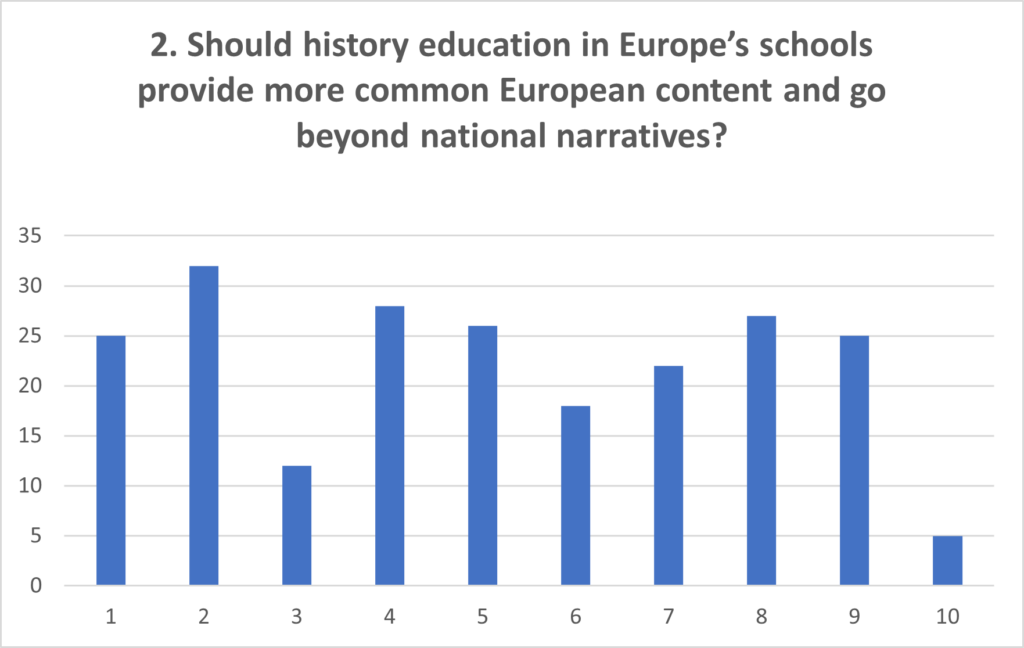
Should history education in Europe’s schools provide more common European content and go beyond national narratives?
The idea of a common history curriculum that focuses more on European narratives rather than national ones is contested among the participants. Many of the participants are undecided (value 5) or see both positive and negative effects. The polarizing character of the question reflects in the high number of participants locating themselves on the fringes and either strongly rejecting the idea (value 2) of history education providing more joint European content or seeing it very positively (value 9). The average value of 5.09 shows: The question reveals a lot of discussion.
Participants’ Voices
PRO: “Teaching students about Europe’s past will help them to make more thoughtful decisions when they are older.”
CONTRA: “No need for such a thing, as European history is already thought a lot in school”
Participants’ Best Practice 🇧🇬
„In Bulgaria there are not enough lessons focused on European content in history classes but recently it has been initiated a new subject, called Civil Education. This subject is absolutely necessary as it provides a practical approach in order to lay the foundations of actively lived civil values and attitudes.“
Should EU enlargement be accelerated for countries with candidate status?
When asked whether EU enlargement should be accelerated for countries with candidate status, a clear majority of participants (average value: 6.2) sees the need and rates acceleration as positive. The majority of participants voted with values between 7 and 10. Among the critical voices, the high approval ratings in the 4 range are noteworthy, indicating that a large proportion of the critical voices recognise the need for acceleration but is nevertheless critical or at least unsure about it.
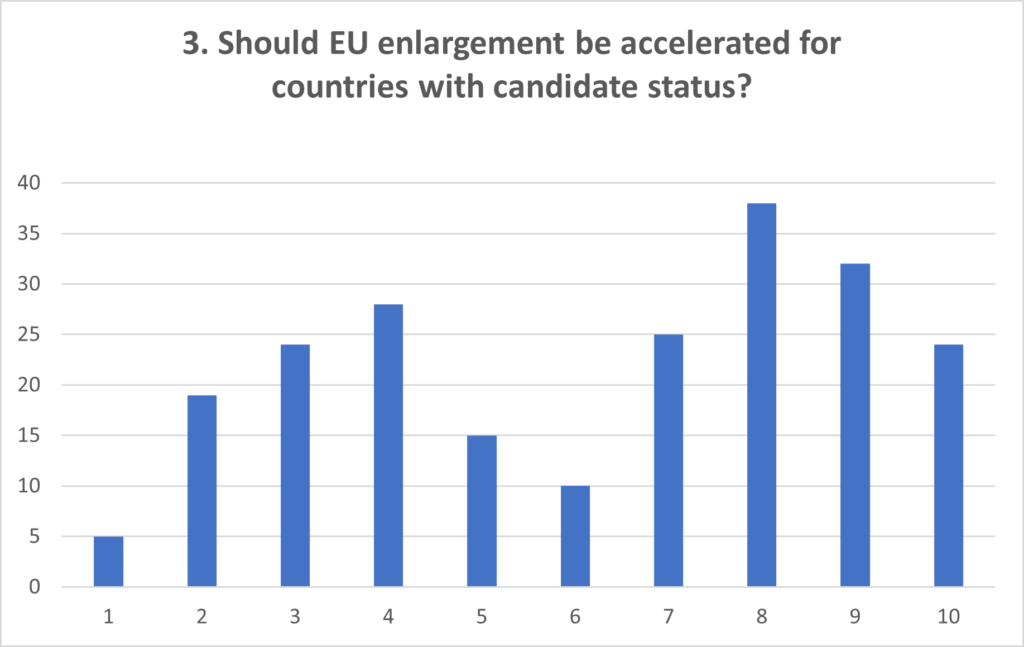
Participants’ Voices
PRO: “It would give (new member countries) a lot more national security along with economic and social benefits. Allowing more countries into the EU would allow the introduction of new cultures and ideas into the EU community”
CONTRA: “There should be a respected rule of law which means that every candidate state has to fulfill all the requirements of membership. The criteria which are already adopted ought to not be changed but even more tightened.“
Participants’ Best Practice 🇪🇸
„In the past, when our country wanted to join the EU, most members rejected due to the fact that we had not enough stability; our economy was not considered as developed as in other countries. Nowadays, Spain has achieved a similar social, economic and democratic level to that of other European countries thanks to the EU’s help. With this experience in mind: Why are so many Spanish people against the inclusion of new countries into the EU?”
About
This workshop formed part of the 7th edition of the European HomeParliaments with 40 HomeParliaments in total, independently conducted by 220 participants from all over Europe in the period from October to December 2022.

